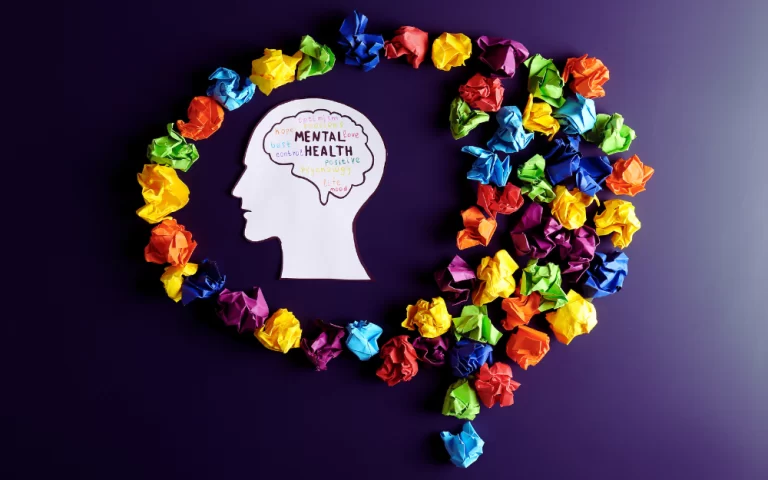When most people think of exercise, images of weight loss, muscle building, or cardiovascular health often come to mind. However, the benefits of physical activity go far beyond the body. Exercise is a powerful tool for mental wellness—one that can uplift mood, sharpen focus, reduce anxiety, and build emotional resilience. In today’s fast-paced and often stressful world, embracing movement not just for physical health, but also for the mind, is more important than ever.
In this blog, we’ll explore how exercise impacts mental health, the science behind the connection, and practical ways to incorporate movement into your daily routine for lasting emotional and cognitive benefits.
The Mind-Body Connection: How Exercise Affects Mental Health
Movement affects the brain in profound and multifaceted ways. When you engage in physical activity, several positive changes occur:
- Boosting Mood Through Endorphins – Exercise stimulates the production of endorphins, often referred to as the brain’s feel-good chemicals. These neurotransmitters help create a sense of happiness and euphoria, reducing feelings of pain and stress.
- Reducing Stress Hormones – Physical activity lowers levels of cortisol and adrenaline—hormones closely linked to stress. As a result, regular exercise can help regulate your stress response, making it easier to stay calm in difficult situations.
- Enhancing Brain Function – Exercise increases blood flow to the brain, improving the delivery of oxygen and nutrients. It also promotes the growth of new neural connections (a process called neurogenesis), particularly in areas like the hippocampus, which plays a key role in memory and learning.
- Regulating Sleep – A good workout can help regulate your sleep cycle, making it easier to fall asleep and stay asleep. Since poor sleep is closely tied to anxiety, depression, and cognitive decline, better sleep supports overall mental well-being.
- Building Resilience and Confidence – Achieving exercise goals—whether running a 5k or completing a yoga session—can improve self-esteem, foster a sense of mastery, and enhance resilience to life’s challenges.

Exercise as a Natural Antidepressant
A growing body of research shows that regular physical activity can be as effective as medication or psychotherapy for some individuals struggling with mild to moderate depression. Studies indicate that consistent exercise can:
- Decrease symptoms of depression and anxiety
- Improve self-perception and social interaction
- Serve as a buffer against future depressive episodes
Unlike medication, exercise offers a side-effect profile that’s overwhelmingly positive: better physical health, stronger immune function, and enhanced cognitive performance.
In fact, some mental health professionals now include movement-based therapy plans as a standard part of treatment for depression, anxiety disorders, PTSD, and even ADHD.
The Best Types of Exercise for Mental Wellness
Not all exercise impacts the mind in the same way. Different types of movement offer different mental health benefits:
- Aerobic Exercise (Cardio) – Running, swimming, biking, and brisk walking elevate heart rate and are closely associated with mood improvement and reduced anxiety. Aerobic exercise boosts oxygen flow and increases endorphin levels, making it a top choice for mental health support.
- Mind-Body Practices – Yoga, tai chi, and qigong combine physical movement with breathwork and mindfulness. These practices have been shown to significantly reduce stress, lower cortisol levels, and improve emotional regulation.
- Strength Training – Lifting weights or engaging in resistance exercises not only builds muscle but also boosts self-esteem and reduces symptoms of depression. Studies suggest that strength training can foster feelings of empowerment and improve body image.
- Outdoor Activities – Hiking, kayaking, or even a simple walk in the park integrates the benefits of movement with exposure to nature, which further reduces stress, improves mood, and restores attention.
- Team Sports and Group Exercise – Participating in group classes or team sports combines physical activity with social connection, promoting a sense of belonging and reducing feelings of loneliness.

Making Movement a Sustainable Habit
The key to harnessing the mental health benefits of exercise is consistency. Here’s how to make movement a regular, enjoyable part of your life:
- Start Small: If you’re new to exercise, even 10-15 minutes a day can make a difference. A short walk after dinner or a quick morning stretch can set a positive tone.
- Find Activities You Enjoy: Exercise shouldn’t feel like a punishment. Whether it’s dancing, cycling, or yoga, find a form of movement that you look forward to.
- Set Realistic Goals: Focus on small, achievable milestones instead of perfection. Celebrate progress, no matter how small.
- Use Movement as Stress Relief: Instead of seeing exercise as another task on your to-do list, frame it as your personal time to decompress and recharge.
- Involve Others: Invite a friend to join you for a workout, sign up for a group class, or join an online fitness community for motivation and accountability.
- Practice Mindfulness While Moving: Pay attention to how your body feels during movement—the rhythm of your breath, the stretch of your muscles. Mindful exercise amplifies mental health benefits.
Exercise and Specific Mental Health Conditions
While movement benefits everyone, certain types of exercise can be particularly helpful for specific mental health challenges:
- Anxiety: Gentle, rhythmic activities like walking, swimming, and yoga are excellent for calming the nervous system.
- Depression: Aerobic exercises, such as running or cycling, have been shown to be especially effective for lifting mood.
- ADHD: Activities that require strategic thinking and coordination (like martial arts or team sports) can improve focus and executive functioning.
- PTSD: Mind-body practices that emphasize breathwork and grounding, such as yoga, can help individuals reconnect with their bodies in a safe and healing way.
Always consult with a healthcare provider before beginning a new exercise regimen, especially if you have a medical condition or are recovering from trauma.

Conclusion: Move Your Body, Nourish Your Mind
Exercise isn’t just about fitness—it’s a cornerstone of mental wellness. Moving your body regularly can enhance mood, build resilience, boost brain function, and improve your quality of life. Whether it’s a calming yoga session, a brisk nature walk, or a heart-pounding spin class, every bit of movement contributes to a healthier, happier mind.
At its core, movement is a celebration of what your body and mind can achieve together. Start where you are, move in ways you enjoy, and watch as your mental wellness blooms alongside your physical health.
Remember: Movement is medicine—for your mind, your body, and your soul.
Ready to start? Lace up your shoes, roll out your mat, or step into the sunshine—you’re just one movement away from feeling better.
Elumind Centres for Brain Excellence is an integrated mental health center offering solutions that can help you with your mental/brain health needs. To start your journey, book your FREE 15-MINUTE PHONE CONSULTATION. We are here for you.








